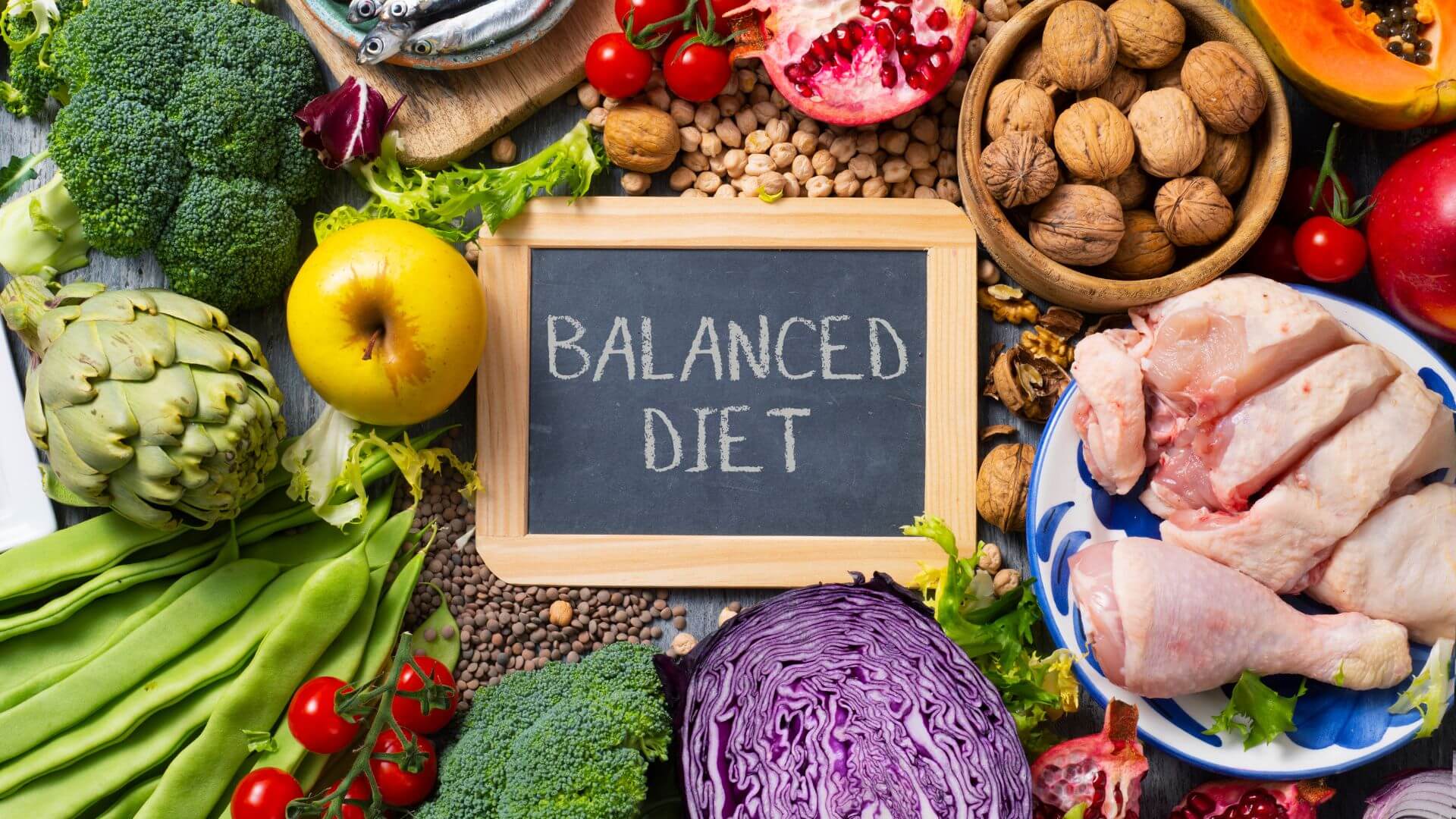The Science Behind a Balanced Diet: Key Nutrients You Need
A balanced diet is crucial for maintaining optimal health and well-being. It is not just about eating less or following the latest food trends; it’s about ensuring that your body gets all the necessary nutrients in the right proportions to function at its best. The concept of a balanced diet revolves around including a variety of foods that provide the essential macronutrients and micronutrients required for the body’s metabolic processes, energy production, immune support, and overall health.
This article will delve into the science behind a balanced diet, explaining the key nutrients that your body needs and their roles in maintaining health. Understanding how these nutrients work together will help you make informed dietary choices for a longer, healthier life.
What is a Balanced Diet?
A balanced diet is one that includes a variety of different foods in the right proportions to provide the body with the nutrients it needs to function properly. The main components of a balanced diet include carbohydrates, proteins, fats, vitamins, minerals, fiber, and water. These nutrients serve distinct roles in the body, contributing to everything from energy production to immune defense and cellular repair.
To achieve balance, a person should consume:
- Carbohydrates: A source of energy.
- Proteins: Necessary for growth and tissue repair.
- Fats: Vital for energy storage, brain function, and cell structure.
- Vitamins and Minerals: Crucial for maintaining body processes and preventing disease.
- Fiber: Supports digestion and regulates blood sugar levels.
- Water: Essential for maintaining hydration, digestion, and overall body functions.
Key Nutrients in a Balanced Diet
1. Carbohydrates
Carbohydrates are the body’s primary source of energy. When you eat foods rich in carbohydrates, such as fruits, vegetables, grains, and legumes, your body breaks them down into glucose, which is used as fuel by your cells. Glucose is the preferred energy source for the brain and muscles, and it is essential for daily activities.
There are two types of carbohydrates:
Simple Carbohydrates: Found in foods like sugar, syrups, and refined grains, these carbs are quickly digested and cause rapid spikes in blood sugar levels. While simple carbs can provide quick energy, they are generally less nutritious and can contribute to weight gain and metabolic issues if consumed in excess.
Complex Carbohydrates: Found in whole grains, vegetables, and legumes, these carbs are digested more slowly, providing a steady source of energy and helping to maintain stable blood sugar levels. Complex carbohydrates also contain fiber, which is essential for digestive health.
The key to a balanced diet is to focus on whole, unprocessed sources of carbohydrates, such as brown rice, oats, quinoa, and vegetables, while limiting refined sugars and processed foods.
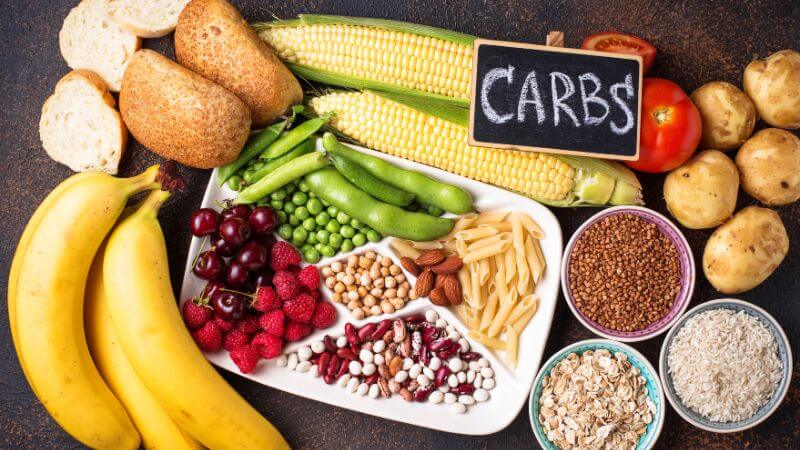
2. Proteins
Proteins are made up of amino acids, which are the building blocks of the body. They play a crucial role in growth, tissue repair, immune function, and hormone production. Proteins are found in a variety of foods, including meat, fish, eggs, dairy, legumes, nuts, and seeds.
There are two types of proteins:
Complete Proteins: These contain all nine essential amino acids that the body cannot produce on its own. Complete proteins are found in animal products like meat, poultry, fish, eggs, and dairy.
Incomplete Proteins: These lack one or more essential amino acids and are typically found in plant-based sources like beans, lentils, and grains. However, by combining different plant-based foods (e.g., beans and rice), you can still obtain all the essential amino acids.
The recommended daily intake of protein varies based on age, sex, activity level, and health status, but it’s generally advised that adults consume about 0.8 grams of protein per kilogram of body weight. Active individuals or those looking to build muscle may need more.
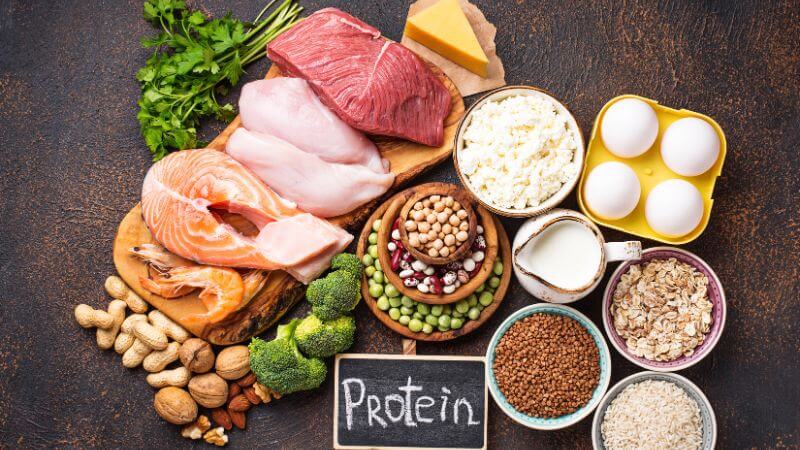
3. Fats
Fats often have a negative reputation, but they are essential for various body functions, including energy storage, cell membrane structure, brain function, and the absorption of fat-soluble vitamins (A, D, E, and K). Fats are also critical for maintaining healthy hormone levels and supporting the nervous system.
There are three main types of fats:
Unsaturated Fats: These are considered healthy fats and are found in foods like olive oil, avocados, nuts, seeds, and fatty fish. Unsaturated fats help lower bad cholesterol levels (LDL) and reduce the risk of heart disease.
Saturated Fats: Found in animal products such as meat, butter, and cheese, as well as some tropical oils (e.g., coconut oil and palm oil), saturated fats should be consumed in moderation. Excess intake of saturated fats can raise LDL cholesterol levels, contributing to an increased risk of heart disease.
Trans Fats: These are artificially created fats found in processed foods, such as baked goods, snacks, and margarine. Trans fats are unhealthy and should be avoided as much as possible because they raise LDL cholesterol and increase the risk of cardiovascular disease.
Fats should make up around 20-35% of your total daily caloric intake, with an emphasis on unsaturated fats and limiting saturated and trans fats.

4. Vitamins
Vitamins are organic compounds that the body requires in small amounts to support essential processes like immune function, energy production, and the maintenance of healthy skin, eyes, and bones. There are 13 essential vitamins, each with specific roles:
Vitamin A: Supports eye health, immune function, and skin integrity. Found in carrots, sweet potatoes, and dark leafy greens.
Vitamin C: An antioxidant that supports immune health, wound healing, and the absorption of iron. Found in citrus fruits, berries, and bell peppers.
Vitamin D: Helps regulate calcium and phosphate levels for bone and immune health. Sources include sunlight exposure, fortified dairy, and fatty fish.
Vitamin E: An antioxidant that protects cells from damage and supports skin health. Found in nuts, seeds, and vegetable oils.
Vitamin K: Essential for blood clotting and bone health. Found in leafy greens, broccoli, and Brussels sprouts.
Each vitamin has a specific role in the body, and deficiencies can lead to various health issues. A diverse diet rich in fruits, vegetables, whole grains, and lean proteins typically provides the vitamins your body needs.
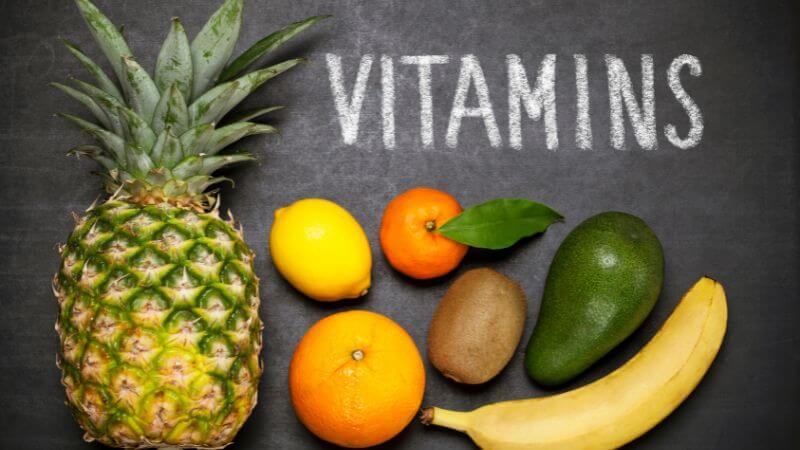
5. Minerals
Minerals are inorganic elements that help regulate body functions, build bones and teeth, and support nerve function. Key minerals include:
Calcium: Vital for bone health, muscle function, and nerve transmission. Found in dairy products, fortified plant-based milks, and leafy greens.
Iron: Essential for the production of red blood cells and oxygen transport. Found in red meat, legumes, and spinach.
Magnesium: Supports muscle and nerve function, as well as blood sugar regulation. Found in nuts, seeds, leafy greens, and whole grains.
Potassium: Regulates fluid balance, nerve signals, and muscle contractions. Found in bananas, potatoes, and leafy greens.
A mineral-rich diet helps prevent deficiencies and supports overall bodily functions. To ensure adequate intake, consume a variety of mineral-rich foods throughout the day.
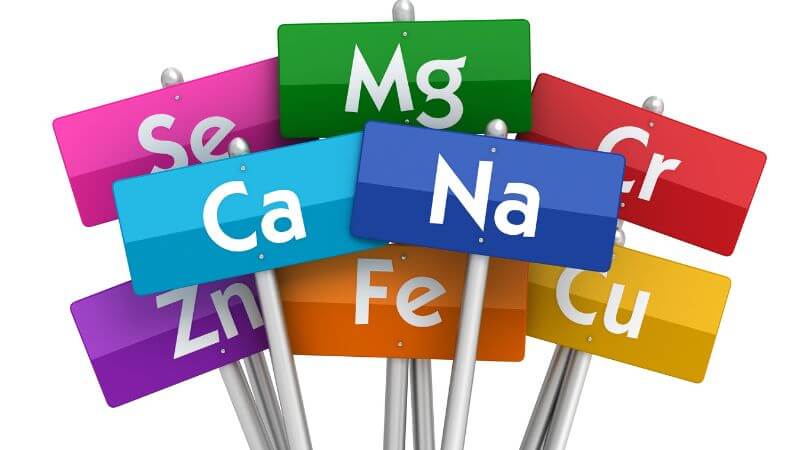
6. Fiber
Fiber is a type of carbohydrate that the body cannot digest. Although it does not provide energy, fiber plays a vital role in digestion and overall health. It helps regulate blood sugar levels, lowers cholesterol, and supports healthy bowel movements. There are two types of fiber:
Soluble Fiber: Dissolves in water and helps lower blood cholesterol levels and regulate blood sugar. Found in oats, apples, and beans.
Insoluble Fiber: Adds bulk to stool and helps with digestion and regularity. Found in whole grains, nuts, and vegetables.
Adults should aim to consume about 25-38 grams of fiber per day, depending on age and sex. A diet high in fiber is linked to a lower risk of chronic diseases such as heart disease, type 2 diabetes, and certain cancers.

7. Water
Water is essential for life. It supports digestion, regulates body temperature, aids nutrient absorption, and removes waste products. Since water is lost through sweat, urine, and other bodily functions, it’s important to stay hydrated throughout the day.
The general recommendation is to drink around 8 cups (2 liters) of water per day, but individual needs can vary based on factors like age, sex, activity level, and climate. In addition to plain water, hydration can come from fruits, vegetables, and beverages like herbal teas.

Conclusion
A balanced diet is the foundation of good health, providing the body with the nutrients it needs to perform all of its vital functions. Understanding the roles of carbohydrates, proteins, fats, vitamins, minerals, fiber, and water can help you make informed choices about the foods you eat. By focusing on a variety of whole, minimally processed foods and ensuring you get adequate amounts of these key nutrients, you can support your physical health, boost your energy levels, and improve your overall quality of life.
By making small, sustainable changes to your eating habits and incorporating these essential nutrients into your diet, you can achieve a more balanced and nutritious way of living—leading to better long-term health and well-being.


